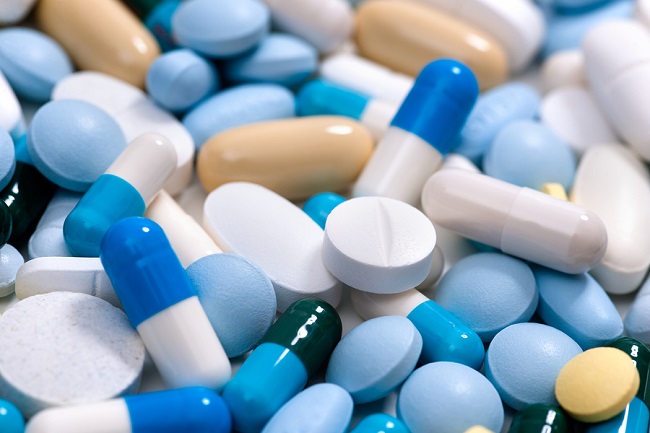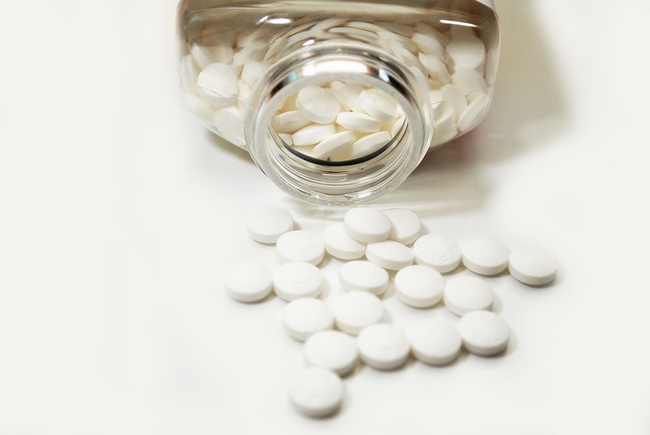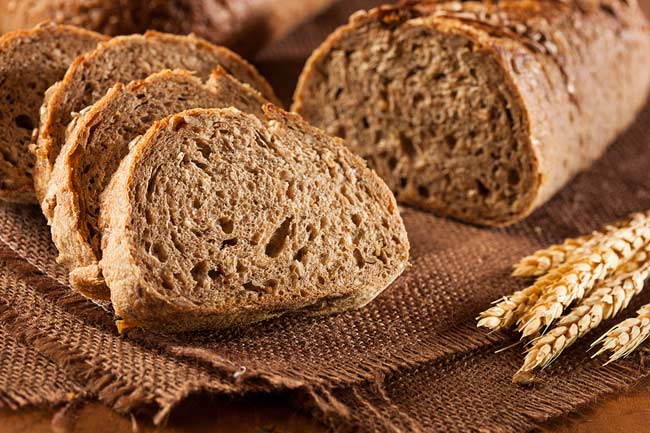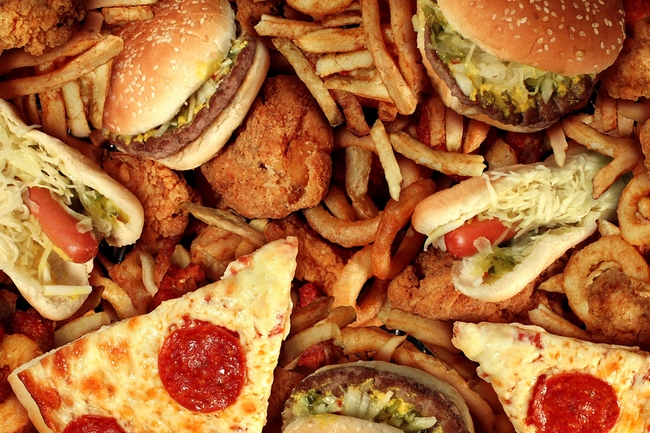- Make It Yourself Lavender Heart-Shaped Bath Bombs!
- 20 Things You Never Knew About “Down There”
- 12 Best Foods For Those Suffering From Arthritis Pain
- 12 Personal Hygiene Mistakes Almost Everyone Makes (Mom Never Told You About #4!)
- 15 Medicinal Plants And Herbs From The Cherokee People
- 12 Mind-Blowing Benefits Of Drinking Coconut Water During Pregnancy
- 12 Outstanding Winter Foods That Won’t Fatten You Up Like A Christmas Turkey
10 Bizarre Things That are Killing Your Gut

Photo credit: bigstock.com
You might not know it, but your gut is such a complex thing, regulating so many body functions, including being responsible for about two thirds of your immune system, that some scientists refer to it as your second brain!
In a recent study, scientists in the US found that the microorganisms in our gut support the production of immune cells, as well as influence the immune cell function. As much as 80 percent of the neurotransmitter serotonin is produced in our gastrointestinal tract, not in the brain as you might think. Due to the large quantities of neurotransmitters in your gut, this means that your gastrointestinal tract is actually the force behind your overall mental and physical wellbeing.
There have been some interesting facts that have emerged from this study; we now know that humans have fewer genes that a carrot, pineapple, or even a fruit fly! However, the bacterium that is in our gut is always talking to our genes so when we have a gut flora that in in balance, we will have more energy and our brains will work much better. We also know that our gut lining is only one cell thick. That makes it thinner than an eyelid. Unlike your eyelid, however, it replaces itself every couple of days, which gives us a fresh opportunity to always build a stronger, healthier gut, and therefore a stronger, healthier body.
More than one third of Americans today have some sort of digestive problems and since it’s clear that a healthy gastrointestinal system is vital for our health and happiness, shouldn’t we be more aware of the things that knock our gut out of whack? You might be surprised at things you thought were everyday, common items or conveniences, are actually killing your gut, draining you of energy, and ruining your immune system.
Keep reading for all the bizarre things that are killing your gut, and you, a little bit every day.
1. Lack of Sleep
You might never have imagined that cutting your Z’s by a few hours could wreak such havoc on your gut, but it does. When you deprive your body of sleep, you are depriving it of the time it needs to repair itself. Getting less than 7 to 9 hours sleep each night will also deprive your body of the relaxation sleep cycle that your body must have to fully repair any gut problems you might be having.
To get your best night’s sleep, turn the thermostat below 70 so that your body will naturally release that all important sleep hormone melatonin. If you don’t believe this, try adding just one more hour of sleep each night for 2 weeks and see if this makes a difference in how you feel. Find out secret tips to sleep better.

Photo credit: bigstock.com
2. Antibiotics
Although there is no denying that there are times antibiotics have saved countless lives, using them causes damage to your gut. Antibiotics do not differentiate between good and bad bacteria, they simply kill all bacteria. Don’t take unnecessary antibiotics. If your doctor prescribes some, ask him if they are really necessary.
If you must take them, be certain that you take the entire course to avoid creating superbugs. While you are taking antibiotics, also be sure to consume a product that contains saccharomyces Boulardii, such as Florastor, and continue to consume it for a full two weeks after you stop taking the antibiotics. This will help stop an overgrowth of yeast and help the body build new microbiomes in the gut. If you want to take probiotic supplements, be sure to take them an hour or two after you take the antibiotic, not at the same time. Those antibiotics will simply kill off the probiotics, so it’s a waste of time and money.

Photo credit: bigstock.com
3. NSAIDS
You might not know them by this name, but you know what these are; chances are you probably call them pain killers or headache meds. Things like aspirin, ibuprofen, or Motrin. Consuming these pain killers frequently, or even on a regular basis cause damage to the lining of the gut, which allow things like partially digested food, toxins, and microbes to enter your bloodstream. This issue is called “leaky gut.”
Although these pain killers do stop the pain by blocking cytokines and eicosanoids that encourage inflammation, they also block things that promote healing in the gut. You can use these for occasional pain but if you have chronic, ongoing pain, look for root causes, consider taking herbal pain relievers instead, or talk to your doctor about other options.

Photo credit: bigstock
4. Wheat
There is new research that suggests that even if you don’t suffer from celiac disease or have a wheat intolerance of some kind, wheat could still be the root cause of many digestive problems including IBD, acid reflux, and other gut issues. Why is this? The wheat that is grown today is not the same wholesome wheat your grandparents grew and ate.
Today’s wheat has been significantly, and some believe unnaturally, crossbred over the past 50 years or so that it now contains vast changes in its protein make up and amino acid content, which could damage your gut health and make your feel more hungry after eating it. Try removing wheat from your diet for 30 days and see if it makes you feel better.

Photo credit: bigstockphoto.com
5. Not Natural Foods
A great deal of the American diet includes foods that have been made in laboratories, including foods like high fructose corn syrup, industrialized fats, and artificial colors, sweeteners, and flavors. These non-natural foods confuse our bodies.
Natural oils, such as coconut oil, are important for our cells but denatured, industrialized fats that have been stripped of all vitamins and antioxidants, do not give our bodies the food they need. Think of these non-natural foods as being “dead.” They have nothing to offer the body except calories. Avoid eating fast food, junk foods, and especially highly processed foods as much as possible.

Photo credit: bigstock.com
6. Carrageenan
You might not have even heard of this food additive. It’s used as a thickener in things like sour cream, soy milk, and ice cream. Since it’s derived from seaweed, it can even be included in foods listed as being organic; however, studies have shown that this additive causes inflammation in the digestive system, which triggers an immune response similar to the kind that happens when your system is invaded by a deadly pathogen, such as Salmonella or E. coli.
Since carrageenan must appear on the list of ingredients, this one is fairly easy to avoid. Do not consume anything containing carrageenan, even if the product says that it’s organic and/or natural.

Photo credit: bigstock
7. GMOs
The Journal of Organic Systems found in a 2013 study that when pigs were fed GMO foods, they were much more likely to have severe inflammation of the stomach. Glyphosate, which is more commonly called RoundUp, is the pesticide sprayed on GMO foods. So much of this is applied to, and is found in, GMO foods that the American government continues to increase the limits that are allowed in food. Glyphosate acts like an antimicrobial, killing bacteria in the gut, good and bad.
Avoid GMOs, including GMO oils such as canola, corn, soy, or cotton seed oil, and always choose organic.

Photo credit: bigstock.com
8. Alcohol
That cocktail you are downing has very few nutrients but it takes many nutrients from your body to metabolize it. You probably know that alcohol isn’t good for you, but did you know that it’s actually toxic to your cells? Your liver will metabolize the alcohol and break down the toxins in that Mojito.
Continued alcohol consumption puts a terrible strain on your liver, which can affect your overall digestive system. Don’t drink to excess and don’t drink regularly, especially if you are suffering from any type of digestive issue.

Photo credit: bigstock.com
9. Smoking
Actually, it’s when you quit smoking that things tend to get out of control. Smoking can kill both the good and bad bacteria, but when you quit, this gives the bad bacteria a chance to grow uncontrolled.
If you have quit, or plan on quitting soon, be sure that you eat plenty of fermented foods and take some probiotics to help restore the healthy bacteria in your digestive system.

Photo credit: bigstock.com
10. Chronic Stress
Although we tend to make jokes about it, chronic stress is not really funny. Actually, ongoing stress is toxic. It causes the body to make less immune defense hormones, as well as DHEA, which is the anti-stress, anti-aging hormone. Your body will respond by slowing down the digestive process, which will reduce the blood flow to your organs, as well as produce toxic metabolites. Find ways to deal with your stress either through meditation, a change of jobs, or practicing yoga.
SEE ALSO: Secrets for Treating Chronic Fatigue Syndrome
Be sure you give yourself time. Building up healthy levels of gut flora can involve anywhere from several days to several months, depending on the amount of damage and your lifestyle habits.
References:
































